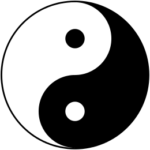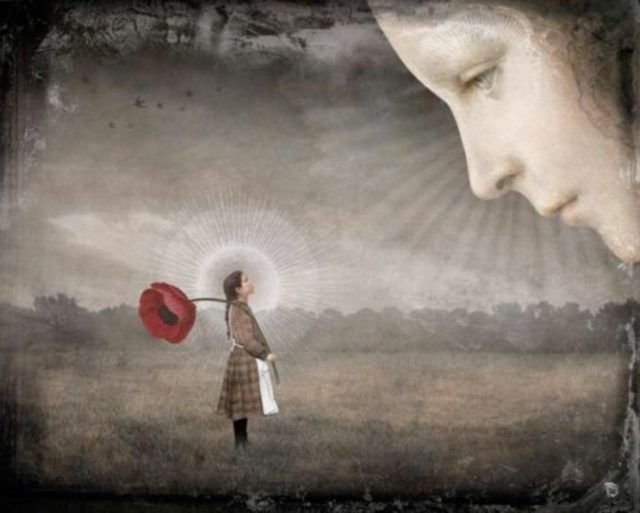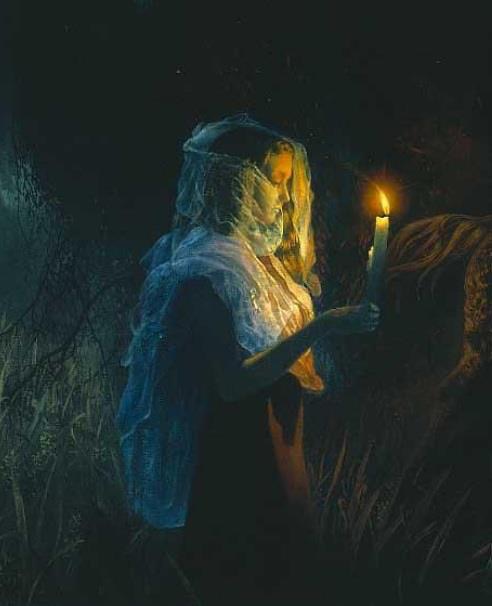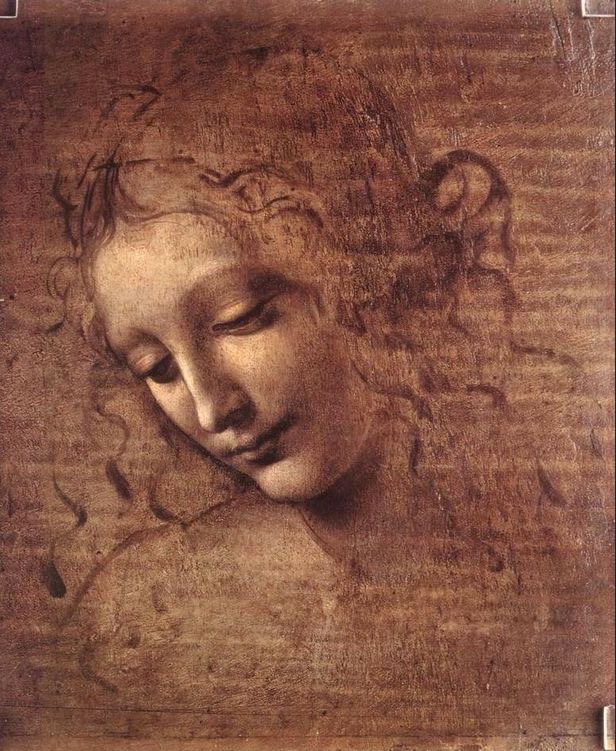“All things corruptible
Are but reflection
Earth’s insufficiency
Here finds fulfilllment
Here the ineffable
Wins through Love
Eternal Womanhood
Leads up above”
-Johann von Goethe, Chorus Mysticus from Faustus
“In the beginning Elohim created the Heaven and Earth…”
-Genesis 1:1
Elohim is a Hebrew word that means gods and goddesses. There is no complete understanding of theology, religion, philosophy or mysticism without both the male and female. The masculine force is active and has a role to fulfill, and the feminine force is receptive and also has a role to fulfill.
The cooperation of those two forces results in the creation of all things, but the divine feminine force can be subtle and has often been neglected.

The Principle of Gender
One of the seven hermetic principles is the principle of gender, from the Greek root gen, “to produce”, “to engender”. The union of opposites makes something new, which is illustrated in Taoism with the symbol of yin and yang. Yin and yang are action and repose, fire and water, sky and earth, male and female.
Everything has yin and yang, it is the foundational pattern within all of existence, and this magnetism of the opposites is found in all of nature, from the atom to the planetary orbits.
Everyone and everything has female and male principles. In a certain era, the female and male principles were fused and every human was a complete hermaphrodite, with the principles still functioning the same within one human body.
In the teachings of Kabbalah it is said that creation begins when the cosmic feminine Chaos, is fertilized by the cosmic masculine impulse. All worlds are gestated within the womb of the cosmic feminine and from this all of creation unfolds.
Each sephiroth, or realm of creation, is like a fountain overflowing with divine light that pours into the next sephiroth. Each one is at the same time giving and receiving, male and female.

Love and the Divine Feminine
Conscious in the astral world, Samael Aun Weor met the 19th century German poet Johann von Goethe.
Samael said to him “‘I thought your love would be strictly universal, love of the rocks, the mountains, the rivers, the seas, the bird which flies and the fish that glides through the deep waters.”
Goethe responded “Is not human love a spark of divine love?”
“This statement was irrefutable, incontrovertible and correct.“
Love, whether divine or human, is that universal principle which unites all things and gives meaning to life.
Historically “woman” was always related with Love, which we see not just in the romantic sense but in the divine unconditional love, nurturance, and sacrifice that mothers make for their children.
In the realm of the divine we see that Atman, the Being, has two souls: the spiritual soul which is feminine, and the human soul which is masculine. The union of these two souls allows for the incarnation of the Being within the vehicles of the Bodhisattva.

The Great Initiate Women
Quoted from a marvelous lecture by Guellermina Bautista Sanchez:
“Wasn’t Ankesenamon married to Tutankhamen? Wasn’t Seraphina behind the great Cagliostro, silently? Wasn’t Theano behind the Master Pythagoras? Wasn’t Yasodhara behind the great Buddha? And Sephora behind Moses? And Sarah behind Abraham? Wasn’t Mary Magdalene behind the Master Aberamento or Jesus Christ?
All of a sudden, among the times thunder the names of extraordinary women such as Nefertiti, Nefertari, the Egyptian princess Mutemuia, Tiyi (the wife of Ramses III), the Sibyl of Cumas, the Queen Kunti(Krishna’s aunt), Sarasvati and Nichdali (disciples of Krishna) the Queen of Sheba, Seraphina, Prisca, Maximilla, Flora, the Christian slave Blandina, Fatima, Saint Lucia, Blavatsky, Marie Antoinette, María de la Antilla, Saint Ursula, the Gnostic Master Marcelina, the Mayan Master Maria Pastora, Saint Birgitta, the Tibetan princess Yeshe Tsogyel (wife of Padmasambhava), Mary the Prophetess, Teoclea (disciple of Pythagoras), the great Pythoness of the Oracle of Delphi called Divinus, the Queen Syamavati and her housemaid Uttara (both disciples of Buddha).
In the Apocrypha, for example, we can find the teachings of several women such as Salome, Martha, Mary, Eve, and Mary Magdalene herself.
And from ancient times comes also the mysterious rumour of the Egyptian vestals, the Eritrean sybils, the Tibetan dakinis, the Greek hetaeras, the Aztec magicians, the Japanese priestesses, the hierophant women of the Middle East, etc.
Buddha says in respect of the women: ‘There is no difference between man and woman in regarding the search of the Path to Enlightenment. If a woman is willing to attain enlightenment, she will become a heroic woman on the Path to the Truth…The true meaning of the family life is to walk along the Path helping one another. Even a common woman, if she decides to follow the Path…and is full of yearnings, she can transform herself into a great disciple of Buddha’.”
Practice
It is profound to appreciate the divine feminine within ourselves and in the world. The divine feminine is the space, the substrate, the matrix; it is the question and not the answer, and is therefore often rendered invisible.
The quieter virtues such as patience, unconditional love, modesty, humility, chastity are often overlooked or dismissed as old-fashioned or oppressive. But these virtues can blossom within anyone and bring great healing and harmony to the world.
Harmonize with Shakti, the Divine Mother with the mantra: O AO KAKOF NA KHONSA
Oh Isis, Mother of the Cosmos,
root of Love, Trunk, Bud, Leaf, Flower and Seed of all that exists.
We conjure Thee, Naturalizing Force,
we call upon the Queen of the space and of the night,
and kissing your loving eyes, drinking the dew from your lips,
breathing the sweet aroma of your body, we exclaim:
Oh, Thou, Nuit, Eternal Seity of Heaven,
who art the Primordial Soul,
Thou who art what was and what shall be, whose veil no mortal has lifted,
when Thou art beneath the irradiating stars
of the nocturnal and profound sky of the desert,
with purity of heart and in the flame of the serpent we call upon Thee!

